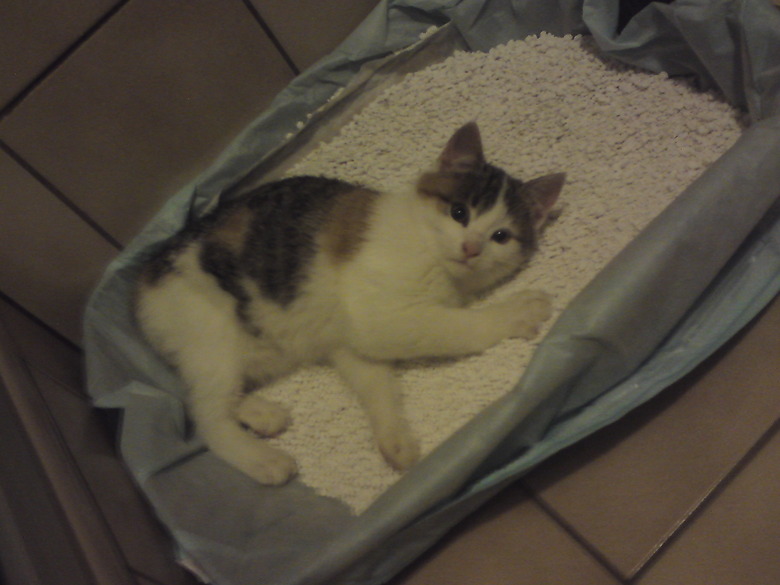How To Tell If Your Cat Is Spraying
If your cat is spraying in your home, you will likely either catch your cat in the act or you will begin to notice your home smells distinctly like cat urine. You might not be able to make your cat stop spraying, but you can try to modify or adjust his behavior.
How to Determine Whether Your Cat Is Spraying
How to Determine Whether Your Cat Is Spraying
Spraying, or urine marking, is not a particularly subtle gesture. Your cat is essentially peeing on various objects and surfaces in your home as a way of marking his territory for other felines in the area. You will undoubtedly begin to notice a strong urine or ammonia type smell as a result of the spraying. You may also notice that your furniture, flooring, walls or other belongs are damp or stained with urine.
Spraying Versus Urination
Spraying Versus Urination
Cats tend to spray on vertical surfaces. If the puddle is on a wall or other upright item rather than in the middle of the floor, your cat is definitely spraying. Cats who use their urine to mark their territory are not actually emptying their bladders when they spray, so there will be less urine than you would typically see if your cat were simply going to the bathroom. The sprayed urine will have a stronger odor than normal due to chemical markers that your cat's body naturally adds to sprayed urine in order to communicate nonverbally with other cats in the area.
Factors That Influence Spraying
Factors That Influence Spraying
Both male and female cats will spray. Animals not surgically altered are more likely to spray than those who have been fixed. Cats who live in multiple cat homes are more likely to spray than those who do not interact with other felines on a regular basis. Environmental stress may also prompt a cat to begin spraying.
Prevent Your Cat From Spraying
Prevent Your Cat From Spraying
You cannot completely prevent your cat from spraying, but you can make efforts to discourage your cat from peeing in areas of your home where it is not appropriate. Have your cat neutered or spayed. The Humane Society of the United States says neutering solves 90 percent of spraying problems in felines.
Provide one more litter box than you have cats, and keep them clean. Conflict between cats in a household can cause spraying, so try to cut out any possible reasons for your cats to fight. Add toys, food dishes and any other desirable items so your cats are not in competition.
Clean any areas where you cat has been spraying with an enzymatic cleanser designed to neutralize pet odors.
Always check with your veterinarian before changing your pet's diet, medication, or physical activity routines. This information is not a substitute for a vet's opinion.
